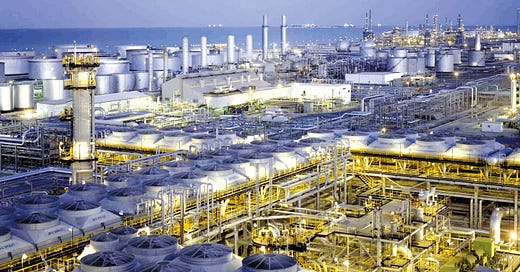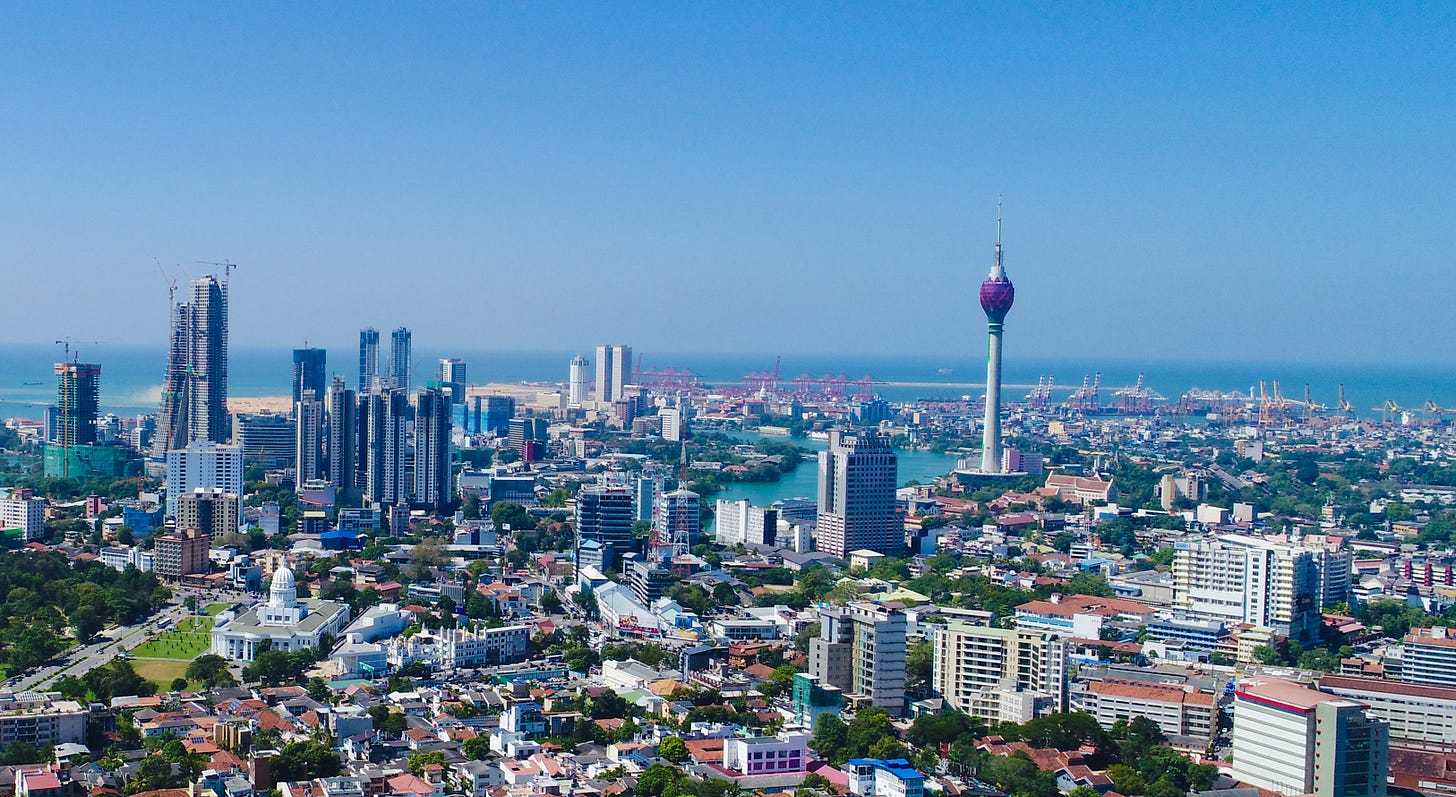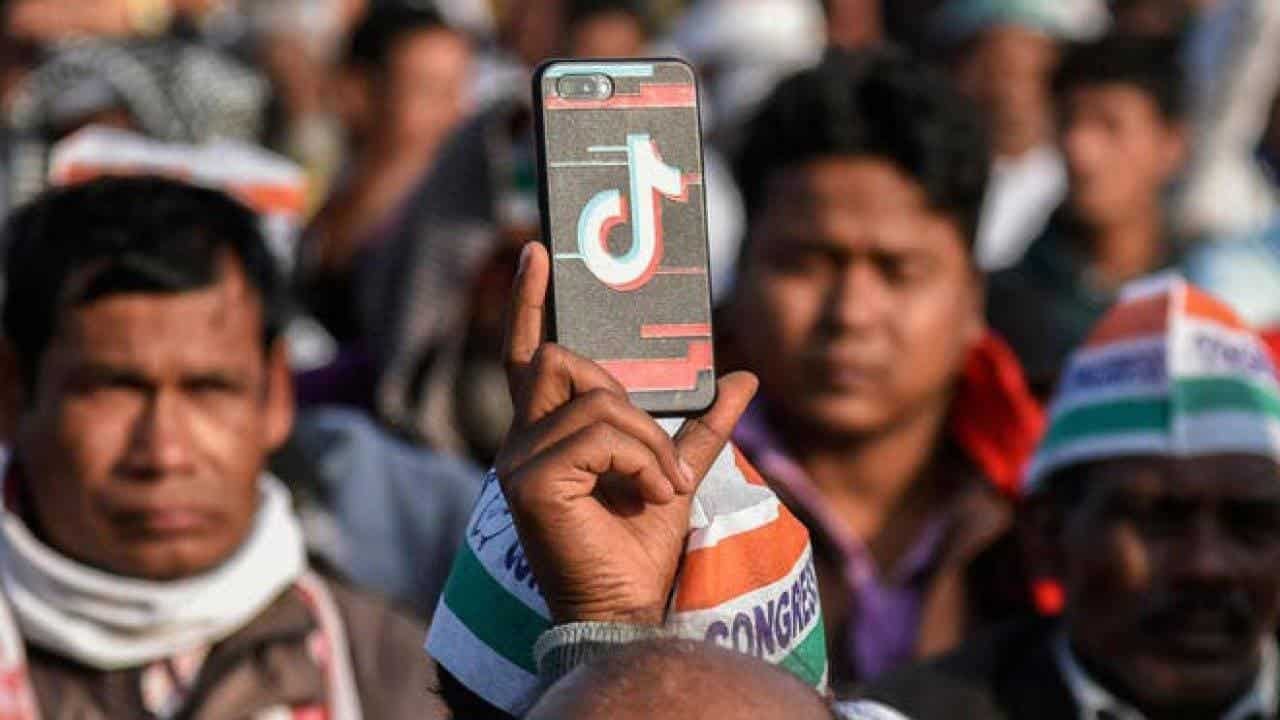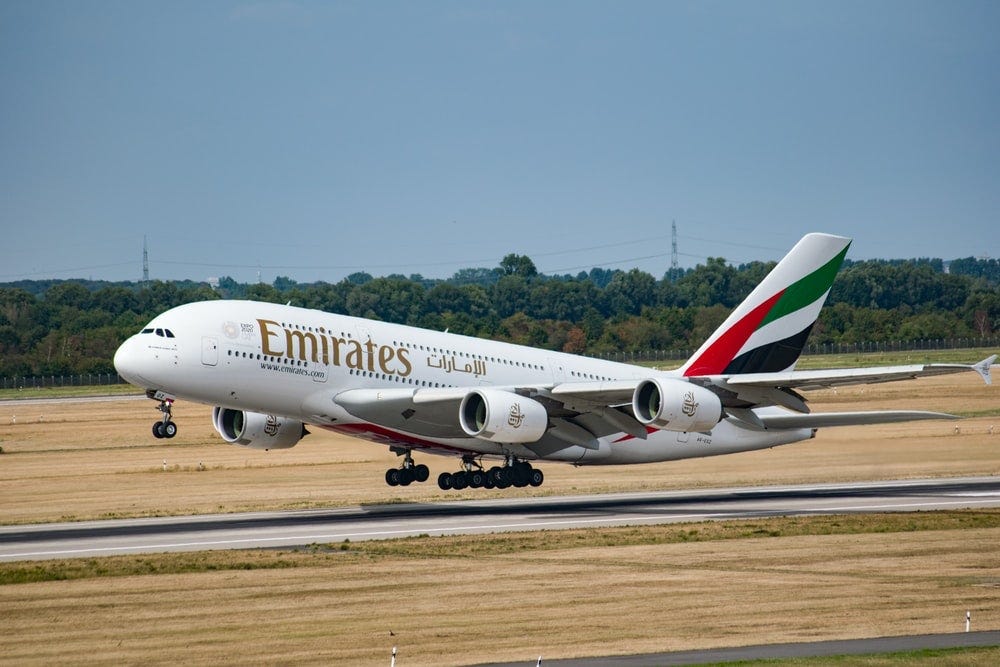Emerging Markets Monitor - June 2
Saudi Ready to Pump More Oil, EM Debt Default Wave Looms, Sri Lanka Seeks Russian Oil, Will TikTok Return to India?, Airline Brand Rankings
The Top 5 Stories Shaping Emerging Markets from Global Media - June 1-2
Saudi Arabia Ready to Pump More Oil if Russian Output Sinks Under Ban
Financial Times
“Saudi Arabia has indicated to western allies that it is prepared to raise oil production should Russia’s output fall substantially under the weight of sanctions, according to five people familiar with the discussions.”
“The kingdom has resisted calls from the White House to accelerate production increases despite oil prices trading near $120 a barrel, the highest level in a decade, arguing that the energy crunch could get significantly worse this year.”
“Saudi Arabia believes it needs to keep spare production capacity in reserve. But fears of outright supply shortages have risen after the EU launched another round of sanctions against Moscow, including a ban on importing seaborne cargoes of Russian oil into the bloc.”
“The EU has also agreed a deal with the UK to bar the insurance of ships carrying Russian oil later this year, a move analysts said was likely to severely curtail Moscow’s ability to redirect oil to other regions.”
“‘Saudi Arabia is aware of the risks and that it is not in their interests to lose control of oil prices,’ said one person briefed on the kingdom’s thinking. Oil prices fell on Thursday, dropping to a low of $112.80 a barrel in early trading from $116.29 at the close on Wednesday.”
“…There have been tensions between the US and the Saudi leadership, including with Crown Prince Mohammed bin Salman, the kingdom’s de facto ruler. Saudi Arabia has repeatedly rejected calls from the White House and the G7 to accelerate production increases immediately.” The FT reports.
Wave of EM Defaults Coming, Says Top Investor
MarketWatch
“Jay Newman is something of an emerging-markets legend. At Elliott Management, he led their successful campaign to get Argentina to pay out on defaulted debt — which included the seizure of a naval vessel with sailors on board — to the tune of $2.4 billion.”
“He’s now expecting a debt epidemic. ‘We are on the brink of an epidemic of emerging market defaults, the scale and scope of which will rival the debt crisis of the 1980s,’ he wrote in an op-ed in the Financial Times. ‘Rate increases by Western central banks, fallout from the COVID pandemic, surging food and fuel prices resulting from the economic fallout of the war between Russia and Ukraine, mismanagement, and outright corruption all are contributing factors.’”
“…Newman says international financial institutions, Western governments, ‘chuckleheaded’ non governmental organizations and international press will call upon private-sector creditors to offer the likes of Sri Lanka concessionary terms. ‘Why do that,’ he replies. ‘Unless a debtor demonstrates a willingness and capacity for reinvention, and unless all creditors — including China and the IFIs — agree to disclose the entirety of their claims and agree to negotiate a resolution on commercial terms, any restructuring will fail.’” MarketWatch reports.
Cash-Strapped Sri Lanka Looks to Russia to Buy Crude Oil
Nikkei Asia
“A desperate and extremely cash-strapped Sri Lanka is turning to Russia for cheap oil, while much of the world shuns Moscow over its invasion of Ukraine.”
“Trapped in the worst economic crisis in its history, the South Asian country said last weekend that it would pay $72 million for 90,000 tons of Russian crude ordered via a Dubai-based company and docked at Colombo for weeks. Sri Lanka's first purchase of Russian oil since the outbreak of the war in Europe gave a new lease of life to a refinery in Sapugaskanda, just outside the commercial capital, which had been shut since March.”
“It also highlighted how the country's woes have given Russia an opening. Sri Lanka has already kicked off discussions with Moscow about directly importing crude oil, although it is unclear where the funds for such shipments would come from. Russia has yet to announce any credit line for its South Asian customer.”
“Sri Lanka needs $554 million to import oil for the month of June alone, according to Power and Energy Minister Kanchana Wijesekera. Experts say that while Sri Lanka's move to take Russian oil may raise eyebrows, the country has little room to be choosy about its trade partners as it suffers from a severe fuel shortage, daily power cuts and surging living costs.” Nikkei Asia reports.
Will TikTok Return to India? Not Likely
South China Morning Post
“TikTok, the popular short video app that has been banned in India since 2020, on Thursday denied a report that it was looking into re-entering the market.”
“Indian newspaper The Economic Times reported this week that ByteDance, the Chinese owner of TikTok, was planning to reintroduce the app to India through a partnership with Mumbai-based realty giant Hiranandani Group.”
“‘While we continue to be hopeful about reconnecting with our community in India who used TikTok as a creative platform for their stories, performances, education, and livelihoods, we have no plans to resume operations at this time,’ a TikTok representative said in an emailed response to the South China Morning Post.”
“Following a deadly Himalayan border clash between Chinese and Indian troops in June 2020, the Indian government banned 59 mainland-developed apps, including TikTok, citing national security and privacy concerns. Other major apps that were banned include Tencent Holdings’ WeChat and Alibaba Group Holding’s UC Browser.”
“Before the crackdown, Chinese firms accounted for six out of the 10 most downloaded apps in the world’s second most populous nation, according to a report by MacroPolo, a think tank run by the Chicago-based Paulson Institute.”
“India used to be one of TikTok’s largest overseas markets, accounting for 18.8 per cent of global downloads in June 2020, followed by the United States at 8.7 per cent, according to market research firm Sensor Tower. Today, at least 270 Chinese apps remain banned in India.” SCMP reports.
Delta Most Valuable Airline Brand, Emirates in Fourth Globally
The National
“Delta Air Lines has retained its title as the world's most valuable airline brand, with Emirates in the top five internationally, consultancy Brand Finance said.”
“The brand value of Delta, whose headquarters are in Atlanta, the US, soared 27 per cent to $7.3 billion as the US airline introduced various new features over the year to retain customer loyalty during a period of low demand, Brand Finance's Airlines 50 2022 report said.”
“American Airlines, United Airlines, Emirates and Southwest Airlines rounded off the top five. Emirates came first regionally and fourth internationally in the top 10 most valuable airline brands in 2022, with a valuation of nearly $5bn, the report showed.”
“Global airlines are starting to rebound from a two-year slump in air travel during the worst of the Covid-19 pandemic as border restrictions ease around the world. But staff shortages at airlines and airports are causing severe disruption at some major centres with cancelled flights and long queues at security. Stepping up operations and rehiring staff fast enough to meet recovering demand is the latest challenge for the aviation industry.”
“Saudi Arabian Airlines, or Saudia as it is known, was ranked as the fastest growing airline brand in Middle East in the report. Its brand value rose 13 per cent to $572 million.”
“Saudi Arabia plans to increase the number of business and leisure tourists to about 100 million a year by 2030, and the number of religious visitors to 30 million by 2025.”
“The Saudia ‘brand is undergoing a heavy investment phase to capture this growth as part of the travel and tourism ecosystem being built almost from scratch in the country,’ Brand Finance said. ‘[It] is one of the key enablers of the logistics and tourism goals of Vision 2030.’”
“Qatar Airways is the second-fastest growing brand in the Middle East at 12.5 per cent growth with a brand value of $2bn, as it looks to capitalise on the Fifa World Cup tournament being held in November and December, the report said. ‘The Middle East region has seen its brand value recover over the last year as demand for travel has recovered,’ the report said.” Deena Kamel reports.
“Live as if you were living a second time, and as thought you acted wrongly the first time.” - Viktor Frankl






